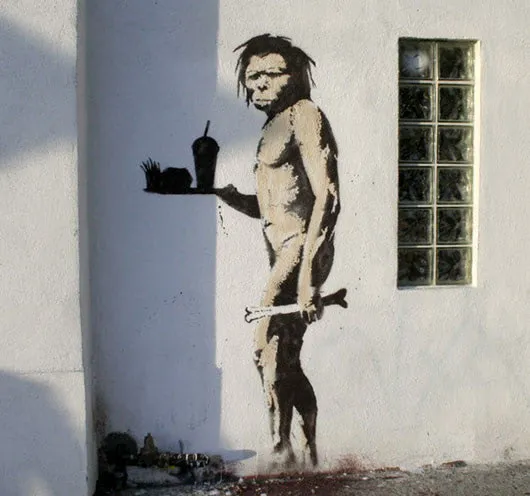The human environmental impact on our planet is hardly underestimated nowadays. Scientist agree humans are to blame for Global Warming – some are already dreaming up scenario’s of geo-engineering to undo the damage. Untouched old nature is almost nowhere to be found anymore besides perhaps some small areas on the South pole, in the deep sea or if one looks up at the stars – although the brighter ones may well be satellites. "We were here", is written all over. So when did the writing begin? Much earlier than thought.
According to the common perception the human impact on the environment is fairly recent and thought to have started in concert with the 19th centuries industrial revolution. Presumably, in earlier times humans lived in harmony with their environment. That popular romantic view however, is increasingly being challenged.
HUMAN ENVIRONMENTAL IMPACT BEGAN MUCH EARLIER THAN THOUGHT
Various evidence exist that humans already in the Stone Age, wiped out many animal species in places as varied as the mountains of New Zealand and the plains of North America. Around 2,000 years ago, when the aboriginal Polynesians arrived in Hawaii, over half of the native species of birds became extinct. Some even argued humans are to blame for the extinction of Neanderthaler man.
And the crime scene continues: According to a recent book on the Human Impact on Ancient Marine Ecosystems, edited by Torben C. Rick and Jon M. Erlandson, early human influence wasn’t limited to the extinction of other species: people already influenced whole eco-systems tens of thousands of years ago. People who lived on California’s Channel Islands as much as 13,000 years ago left behind piles of shells and bones, called middens, that offer clues to how they altered their landscape. The Anthropologists found shell middens full of sea urchins, implying that the sea urchins became abundant when hunting depleted the sea otters that prey on them. In turn, the sea urchins would have severely damaged the underwater forests of kelp on which they fed. “Human influence is pretty pervasive,” one of the authors, Torben C. Rick, said in an interview with the New York Times.
Luckily not all the effects of early inhabitants were negative. “When people in the Channel Islands hunted otters, they presumably ended up increasing the abundance of shellfish. The researchers also cite systems of walls and terraces that people in the Pacific Northwest built to trap sediment and create habitat for clams, which they harvested and ate.”
CATALYSTS OF EVOLUTION
These discoveries of early influence of humans on the environment might shed another light our position in nature. Unlike other animals, mankind has never been placed in an environment to which he is specifically equipped. While other animals have specific organs, skills and reflexes that enable them to survive in their proper environment, people are cultural beings by nature.
So, instead of feeling fundamentally guilty about our influence on our environment and finding ways to limit and undo our footprint we might as well take pride and responsibility in who we are: catalysts of evolution. That may sound bombastic, yet this does not mean we are controlling the universe – quite the contrary. In our attempts to cultivate old nature, we cause the rising of a next nature, which is wild and unpredictable as ever: Nature changes along with us. For better or worse, we can be sure of one thing: we will get the nature we deserve.
Image: Banksy. NYTimes article: Ancient man hurt coasts, paper says. Time article: Did Humans Kill Neanderthalers? Related: Exploring Next Nature, Join the Neolitic Revolution, Doggerland – mapping a lost world, If the implications of Global Warming were fair, Humans to blame for global warming.


Comments (0)
Share your thoughts and join the technology debate!
Be the first to comment!